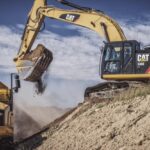Cloud computing has revolutionized the way businesses operate. With the ability to store, manage, and process data over the internet, cloud computing solutions have become indispensable for companies of all sizes. But what exactly is cloud computing, and how does it transform the business landscape?
What is Cloud Computing?
Cloud computing refers to delivering various computing services like storage, processing power, and networking over the internet, rather than relying on local servers or personal devices. These services allow businesses to access resources on-demand, ensuring they only pay for what they use.
How Cloud Computing Solutions Revolutionize Businesses
In today’s fast-paced world, businesses are constantly looking for ways to optimize their operations. Cloud computing solutions provide the flexibility, scalability, and cost-efficiency that traditional IT infrastructures often cannot. By moving to the cloud, companies can streamline their operations, reduce overhead costs, and enhance collaboration across geographically dispersed teams.
Key Components of a Cloud Computing Solution
Infrastructure as a Service (IaaS)
IaaS offers virtualized computing resources over the internet. It provides businesses with the infrastructure they need, including virtual machines, storage, and networking, without the need to invest in physical hardware. This enables companies to scale their infrastructure based on their needs.
Platform as a Service (PaaS)
PaaS provides a platform allowing businesses to develop, manage, and run applications without dealing with the complexities of building and maintaining the infrastructure. It’s an excellent choice for developers who want to focus on creating innovative applications without worrying about server management.
Software as a Service (SaaS)
SaaS is one of the most popular cloud computing models, delivering software applications over the internet. This eliminates the need for local installations and enables users to access software from any device with an internet connection. Popular examples include Google Workspace and Microsoft 365.
Benefits of Implementing Cloud Computing Solutions
Cost Efficiency
One of the most significant advantages of cloud computing is its cost-effectiveness. Businesses no longer need to invest in expensive hardware or IT personnel to maintain infrastructure. Instead, they can use cloud services on a pay-as-you-go basis, reducing capital expenditures.
Scalability and Flexibility
As businesses grow, their computing needs evolve. Cloud solutions provide the flexibility to scale up or down as required. This scalability ensures that companies can adjust their resources based on current demands without overcommitting to infrastructure.
Enhanced Collaboration and Remote Access
With cloud computing, employees can access data and applications from anywhere in the world. This has become increasingly important with the rise of remote work, enabling teams to collaborate seamlessly regardless of their location.
Types of Cloud Computing Solutions
Public Cloud Solutions
Public clouds are owned and operated by third-party providers, offering resources over the internet. These solutions are ideal for businesses looking for cost-effective, scalable services without worrying about infrastructure management.
Private Cloud Solutions
Private cloud solutions are dedicated to a single organization, offering greater control over the infrastructure. These are ideal for companies with strict compliance requirements or those handling sensitive data.
Hybrid Cloud Solutions
Hybrid cloud solutions combine the best of both public and private clouds, allowing businesses to balance their workloads and optimize performance. For example, a company can store sensitive data in a private cloud while running less critical workloads in a public cloud.
How to Choose the Right Cloud Computing Solution
Assessing Business Needs and Objectives
Choosing the right cloud solution depends on understanding your company’s specific needs. Are you looking for scalability, security, or cost savings? Defining these objectives will guide you in selecting the best solution.
Security and Compliance Considerations
Security is paramount when adopting cloud solutions. It’s essential to ensure that the provider complies with industry standards and offers robust security features such as encryption, firewalls, and multi-factor authentication.
Integration with Existing Systems
One of the biggest challenges companies face is integrating cloud solutions with legacy systems. Choosing a cloud provider that offers seamless integration with your existing IT environment is critical for minimizing disruptions.
Security in Cloud Computing Solutions
Common Security Threats in the Cloud
While cloud computing offers many advantages, it also introduces new security risks. One of the primary concerns is data breaches, where unauthorized individuals gain access to sensitive information. Misconfigurations, such as incorrect settings in cloud environments, can also expose vulnerabilities. Additionally, distributed denial of service (DDoS) attacks target cloud platforms, attempting to overwhelm servers and cause service outages. Businesses must be vigilant in identifying and mitigating these risks to safeguard their data and operations.
Best Practices for Securing Cloud Environments
To mitigate these risks, companies should adopt a robust security strategy when using cloud computing solutions. Best practices include:
- Data Encryption: Encrypting data both at rest and in transit ensures that unauthorized users cannot access sensitive information, even if they gain access to the system.
- Access Control: Implementing multi-factor authentication (MFA) and role-based access control (RBAC) helps limit access to only authorized personnel.
- Regular Audits and Monitoring: Continuous monitoring and regular security audits can identify potential threats early, allowing businesses to respond before a breach occurs.
- Compliance with Industry Standards: Ensuring that cloud providers comply with industry-specific regulations, such as GDPR or HIPAA, can reduce the risk of legal issues.
Challenges of Adopting Cloud Computing Solutions
Data Privacy and Legal Concerns
Data privacy is one of the most significant challenges in cloud adoption. Companies must ensure that their cloud providers comply with local and international data protection regulations. This is particularly important for businesses handling sensitive customer information, such as healthcare or financial institutions. Failure to comply with these regulations can result in heavy fines and reputational damage.
Downtime and Disaster Recovery
While cloud providers generally offer high levels of uptime, outages can still occur. Downtime can lead to significant disruptions in business operations, resulting in lost revenue and customer dissatisfaction. It’s essential to have a disaster recovery plan in place that includes automatic backups and redundancy strategies to minimize the impact of outages.
Managing Complex Cloud Architectures
As businesses grow, so do their cloud environments. Managing a complex cloud architecture with multiple services, platforms, and integrations can be challenging. Companies must invest in skilled IT personnel or partner with managed service providers to ensure their cloud infrastructure is optimized and secure.
Cloud Computing Solutions and the Future of Technology
AI and Machine Learning Integration in the Cloud
The integration of artificial intelligence (AI) and machine learning (ML) in cloud computing is transforming how businesses operate. Cloud providers now offer AI and ML services that allow businesses to analyze massive amounts of data, automate tasks, and make data-driven decisions. For instance, cloud-based AI tools can help retailers predict customer behavior, improve supply chain management, and personalize marketing strategies. As AI continues to evolve, its synergy with cloud computing will further revolutionize industries.
Edge Computing and Cloud Solutions
Edge computing is another emerging trend in cloud computing. It refers to processing data closer to the source—on edge devices such as sensors or smartphones—rather than sending it to a centralized cloud data center. This reduces latency and allows for real-time data processing, which is critical for applications like autonomous vehicles, smart cities, and industrial automation. By combining edge computing with cloud solutions, businesses can achieve faster response times and improve overall performance.
The Role of Cloud Computing in Industry 4.0
Industry 4.0, also known as the Fourth Industrial Revolution, emphasizes automation, data exchange, and smart technology in manufacturing. Cloud computing is a key enabler of Industry 4.0, allowing businesses to collect and analyze vast amounts of data from connected devices and machines. This data can be used to improve production efficiency, reduce downtime, and create more flexible manufacturing processes. As industries continue to adopt smart technologies, cloud computing will play a crucial role in driving innovation.
Conclusion: Why Cloud Computing Solutions Matter Today
Cloud computing solutions have become a critical component of modern businesses, enabling them to scale, innovate, and compete in an increasingly digital world. The benefits of flexibility, cost-efficiency, and enhanced collaboration far outweigh the challenges, making cloud adoption a strategic imperative for businesses of all sizes.
As we look to the future, the role of cloud computing will only become more significant, especially as emerging technologies like AI, edge computing, and Industry 4.0 gain traction. Businesses that embrace cloud computing solutions today will be well-positioned to lead in tomorrow’s marketplace.
FAQs about Cloud Computing Solutions
- What are the most common types of cloud services? The three primary cloud service models are Infrastructure as a Service (IaaS), Platform as a Service (PaaS), and Software as a Service (SaaS). Each provides different levels of control, flexibility, and management.
- How does cloud computing help small businesses? Cloud computing enables small businesses to access advanced technology without the high upfront costs of traditional IT infrastructure. They can scale their services as they grow and only pay for the resources they use, making it an affordable solution.
- What is the difference between public and private cloud solutions? Public clouds are shared environments where multiple users access services via the internet, while private clouds are dedicated to a single organization, offering more control and security. Hybrid clouds combine elements of both, allowing businesses to use public clouds for less sensitive tasks while maintaining private clouds for critical data.
- Are cloud computing solutions secure? Yes, but security largely depends on how the cloud environment is managed. Cloud providers offer a range of security features such as encryption, firewalls, and access controls. However, businesses must also implement their own security measures to ensure full protection.
- Can cloud solutions integrate with legacy systems? Many cloud solutions offer integration tools and APIs that allow businesses to connect their legacy systems with cloud services. However, the complexity of integration can vary depending on the existing infrastructure.
- What are the key trends shaping the future of cloud computing? Key trends include the increased adoption of AI and machine learning, the rise of edge computing, and the growing demand for hybrid and multi-cloud strategies. These trends will continue to shape the cloud computing landscape in the coming years.







